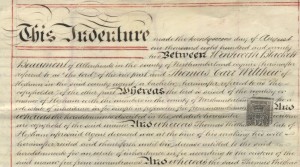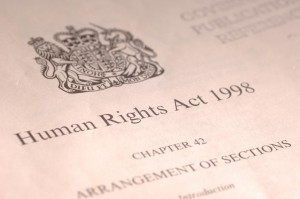 Last week, an appeal by a French prisoner to the EU’s top court against his voting ban revived the debate about prisoner voting rights in the UK. Colin Murray writes that although the appeal was unsuccessful, the ruling did not foreclose the possibility of future successful challenges to bans on prisoner voting. He suggests that it is highly likely that some UK prisoners serving short sentences will claim that their disenfranchisement is disproportionate to their crime in the run up to the 2019 European Parliament elections, indicating the issue will continue to be a thorn in the Conservative government’s side.
Last week, an appeal by a French prisoner to the EU’s top court against his voting ban revived the debate about prisoner voting rights in the UK. Colin Murray writes that although the appeal was unsuccessful, the ruling did not foreclose the possibility of future successful challenges to bans on prisoner voting. He suggests that it is highly likely that some UK prisoners serving short sentences will claim that their disenfranchisement is disproportionate to their crime in the run up to the 2019 European Parliament elections, indicating the issue will continue to be a thorn in the Conservative government’s side.
It has been eleven years since the Fourth Section of the European Court of Human Rights issued the Hirst v UK judgement. In that time, the issue of prisoner voting rights has become the touchstone for the fraught relationship between the UK and the system of rights protection under the European Convention on Human Rights (ECHR). Whilst other crises (such as Abu Qatada’s deportation to Jordan and the reviewability of whole-life sentences) have been resolved or defused, the Strasbourg Court’s demand that the UK modify its blanket ban on convicted prisoners voting has remained an intractable source of conflict, inflaming the Conservative’s manifesto pledge to replace the Human Rights Act with a British Bill of Rights.
For all of the political fulmination upon prisoner voting in the run up to the 2015 General Election, the UK’s showdown with Strasbourg has of late settled into an uncomfortable stalemate. The UK is in continuing breach of its Article 3, Protocol 1 obligations and as such is subject to regular censure before Committee of Ministers’ meetings for its failure to execute the prisoner voting judgments. At the same time, however, the Strasbourg Court has made it clear, in Scoppola v Italy, that minimal reform of the law to extend the vote to short-sentence prisoners would satisfy the UK’s obligations, and in Firth v UK has denied compensation to UK prisoners for the breach of their rights.
The Court’s first olive branch has been snubbed (with successive Governments failing to respond to a Parliamentary Committee’s recommendation, almost two years ago, that short-sentence prisoners should be enfranchised). But the UK Government’s refusal to meet the Court half way is unsurprising, given the Court’s refusal to press the issue. Strasbourg’s denial of compensation ensures that David Cameron does not have to justify make embarrassing payments to prisoners, effectively downgrading the clash from crisis to a running sore point.
The détente between Strasbourg and the UK makes last week’s judgement of the EU’s top court, the Court of Justice of the European Union (CJEU), even more intriguing. Serendipitously timed for release to coincide with David Cameron’s speech to the Conservative Party Conference (and the ten-year anniversary of the Strasbourg Court’s judgement in Hirst), the CJEU’s judgement in Delvigne v Commune de Lesparre-Médoc caused such consternation that Downing Street was obliged to deny that the UK would change its ban on prisoners voting even before the decision was known. The binding effect of CJEU judgments in domestic law means that its intervention on the issue would be much harder for the UK Government to side-step (at least with regard to European Parliament and local elections) than Strasbourg’s rulings.
In the end, Cameron’s speech was not upstaged, with the Court accepting that EU law was not breached in the ongoing denial of the vote to a convicted murderer in France over a decade on from the end of his incarceration. But if the judgment isn’t exactly headline-grabbing, is Joshua Rozenberg nonetheless right to argue that it means that the UK Government should act now on prisoner voting?
In many respects, the Delvigne reference was easy for the CJEU to resolve. The reference by the French Court was poorly constructed, with the Court being supplied with much less background information to the question of EU law its opinion was being sought on than it would usually expect (opening the possibility of ruling the reference inadmissible). The claimant had not attempted to follow the process which existed in French law to lift his disenfranchisement. Moreover, as a convicted murderer, France could make arguments about the seriousness of his offence warranting the additional punishment of disenfranchisement. The Court accepted that in some cases disenfranchisement was compatible with the EU’s Charter of Fundamental rights. Two years earlier, in Chester and McGeoch, the UK Supreme Court had reached the same conclusion on the limitations of the right to vote under EU Law:
I reject the submission that the Supreme Court could or should simply disapply the whole of the legislative prohibition on prisoner voting, in relation to European Parliamentary and municipal elections, thereby making all convicted prisoners eligible to vote pending fresh legislation found to conform with European Union law … under [EU law] a ban on eligibility will be justified in respect of a very significant number of convicted prisoners. (Lord Mance, para.73)
And yet, in spite of these unpromising aspects of this case, the CJEU did not foreclose the possibility of future successful challenges to prisoner disenfranchisement using the Charter. The Court rejected the argument of the UK Government, intervening, that EU law was not engaged by criminal law sanctions or was not a live issue because the case involved a French national challenging French Law, and therefore involved no “cross-border” element. The Court affirmed that Article 39(2) of the Charter, by which “Members of the European Parliament shall be elected by direct universal suffrage in a free and secret ballot”, did not need any cross-border element to generate a fundamental right enjoyed by EU citizens.
This means that in certain cases, claims for votes by prisoners will engage a Charter right. In the run up to the European Parliament elections in 2019 it will be highly likely that some UK prisoners serving short sentences will claim that their disenfranchisement is disproportionate, given that the ban on voting applies automatically irrespective of the level of criminality which triggered imprisonment (which can be much lower than the serious criminality at issue in the Delvigne case) and there is no avenue to challenge the ban (as there was in the Delvigne case). These factors were determinate in the CJEU finding that French law involved a proportionate restriction of the right to vote. Such claims will be hard for the UK courts to dismiss out of hand, and could at the very least trigger a reference to the CJEU for consideration (as they previously refused to do in Chester and McGeoch, because of the serious criminality of the claimants in that case).
“Victories” like this one are therefore hard for the UK Government to crow over, even if they do help to kick the issue into the long grass for a few more years. It may ultimately be better for the UK Government to respond when it is not being forced to by pressure from a European Court (not that successive Governments have not revelled in the image of “standing up to Europe”). But perhaps the most interesting aspect of the case is the degree to which the CJEU staunchly refused to engage with any of the ECHR jurisprudence on prisoner voting. The Advocate General’s Opinion, released this summer, reached broadly the same conclusion as the CJEU (that EU law was engaged, but that the ban was proportionate), but did so based on extensive reliance upon Strasbourg jurisprudence.
The CJEU, however, continues to fear that it might lose out to Strasbourg as the ultimate arbiter where EU law engages human rights questions. Last year, it refused to allow the EU to accede to the ECHR and in Delvigne, as with other recent cases, it has shunned any mention of Strasbourg in its decisions out of concern over letting Strasbourg’s influence grow by the back door. Prisoner voting rights are becoming a central feature of yet another intractable struggle over Europe’s institutional architecture for protecting human rights.
Colin Murray is Senior Lecturer in Law at the University of Newcastle
 It can be difficult to find ideology in the dry world of private law. Undergraduates are often attracted to the more controversial parts of the law – for instance, public law – where ideology is overt. The only real difficulty is, however, the need to look a little bit harder.
It can be difficult to find ideology in the dry world of private law. Undergraduates are often attracted to the more controversial parts of the law – for instance, public law – where ideology is overt. The only real difficulty is, however, the need to look a little bit harder.
